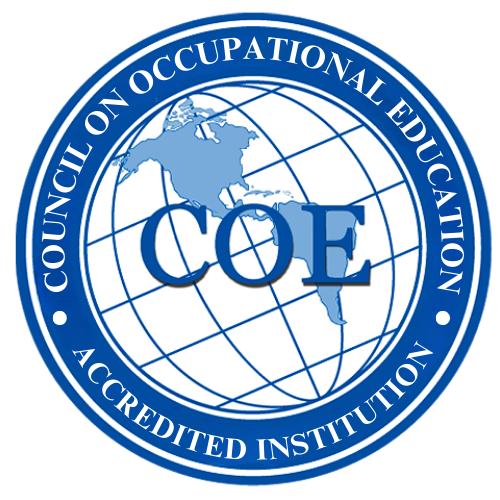Are you passionate about helping people? Are you looking to start a career in the healthcare industry?
If so, this guide is for you. The job market for medical assistants is predicted to grow by 14% by 2023. This means, not only can you have a career helping people but also a stable and steady job.
However, before becoming a medical assistant, you’ll need a specific set of skills. Below, we’re going to discuss the skills needed for medical assistant jobs and how to acquire them. Keep reading to take the first step toward your new career!
Skills Required For Medical Assistant Jobs
To be a good medical assistant and to grow in your career, you’ll need to have several skills. These key skills will help you provide the highest quality of care to your patients.
You’re a vital part of a functioning medical office. Having these skills will keep the clinic running smoothly as well.
Communication Skills
As you may have guessed, communication skills are top of the list. You’ll need to convey information clearly to patients and other healthcare professionals. You may be required to explain procedures or answer questions.
Patients may be nervous and being able to effectively communicate with them can help calm them. Active listening is key to understanding a patient’s concerns. You’ll then need to be able to relay the information back to the healthcare team accurately.
Organizational Skills
It’s crucial you are organized. You’ll be handling multiple tasks, such as scheduling appointments, assisting with procedures, and managing patient records.
Having strong organizational skills will keep everything running smoothly. Being able to prioritize tasks and manage your time is vital in a fast-paced work environment.
Empathy and Compassion
Going to the doctor, whether it’s for something minor, a procedure, or even a check-up, can be anxiety-inducing.
You’ll be working closely with patients and having compassion is key to providing emotional support. Being caring and empathic, no matter what the patient is going through, will make you a better medical assistant.
Your patience will appreciate an understanding approach. It’ll help them be more comfortable, secure, and less scared.
Attention to Detail
Medical assistants also need to pay attention to detail. Precision is key when you’re working in healthcare.
You’ll have to follow the medical protocol exactly and keep accurate records. As a medical assistant, you’ll also need to administer medication properly.
The consequences of mistakes in healthcare are serious. This means meticulous attention to detail is non-negotiable.
More Career Skills for Medical Assistants
The list of skills needed for a medical assistant job is long. It can be overwhelming at times.
However, you may be surprised by how many you already possess. The other good news is there are lots of ways to improve your skills as well.
Ethical and Legal Awareness
Before working with patients, you’ll need to understand the ethical and legal standards in healthcare. You must maintain confidentiality and uphold privacy regulations.
Breaking the law could cost you your career or worse. Following the ethical guidelines is a must as a medical assistant.
Adaptability
One of the skills needed for healthcare assistant jobs is being ready to adapt. Healthcare is always changing and evolving. You’ll need to be ready to adapt when new technologies and regulations arise.
Teamwork and Collaboration
Your patients will have an entire team of healthcare workers, and you’ll be required to work alongside other team members. If you can’t work with nurses, doctors, and administrative staff, your job is going to be very difficult.
You also need to remember being able to collaborate will help your patients get the best care possible. Being a team player contributes to a positive work environment as well.
Technical Proficiency
You will have to use technology as a medical assistant, for example, medical billing software, medical instruments, and electronic health records. A basic level of proficiency is necessary.
When you’re in the office take the time to familiarize yourself with the office equipment.
Clinical Skills
You will have to use technology as a medical assistant, for example, medical billing software, medical instruments, and electronic health records. A basic level of proficiency is necessary.
When you’re in the office, take the time to familiarize yourself with the office equipment.
You will need basic clinical skills as well. This will include measuring blood pressure, pulse, and temperature. You’ll need to know how to administer injections and collect specimens for lab testing.
You should spend time learning medical terminology and anatomy too. This is important for effective communication with healthcare professionals.
Formal Education and Training
One of the best ways to learn the skills above is through formal education and training. This is the foundation of a medical assistant’s skill set.
Before applying for a job as a medical assistant, enroll in a reputable training program. There are many online institutions, community colleges, and vocational schools that offer training.
These programs typically cover a comprehensive curriculum. It will include clinical and administrative aspects of the role.
Having formal education and training will help prepare you for the work setting. It will also give you time to not only learn new skills but improve them.
This will make starting a new career much easier. You’ll start your new job as a medical assistant with the confidence and the skill set you need.
Hands-On Clinical Experience
Another great way to improve your medical assistant skills is through hands-on experience. Many medical assistant programs include a clinical practicum.
Learning the information in the classroom is one thing, but applying it in a real-world healthcare setting is completely different.
Actively participating in patient care activities will help you hone your clinical skills. Externships will also give you the opportunity to seek guidance from professionals.
Having hands-on experience will also prepare you for your job. This way, you won’t be too overwhelmed on your first day.
Continuous Learning
Prioritizing learning will help you improve the skills needed for medical assistant jobs.
Stay up to date on the latest advancements by attending seminars, conferences, and workshops. This will give you the opportunity to learn and improve your skills.
There may be webinars and resources designed for medical assistants, making it easier to continue your education.
Seek Mentorship and Networking
You can learn a lot from other professionals. It’s crucial you connect with other medical assistants, nurses, and physicians.
They will be able to provide valuable insight and guidance. Networking and building relationships within the industry can be challenging. However, there are mentorship programs that can help you.
You should also research networking events in your area. Both opportunities allow you to learn outside of the classroom and at your workplace. Learning from those who have been working in the industry longer than you will help you excel in your role.
Online Courses
Taking online courses can help you improve your medical assistant skills as well. Online certifications can supplement your education and build your credibility.
The great thing about online courses is you can take them at any time. Whenever you feel like you need a refresher, you can sign up.
Utilize Simulations and Labs
If you want to improve your skills, engaging in simulation exercises can help you. There are many educational institutions offering labs that mimic real clinical scenarios. You’ll be able to practice and refine your skills in a controlled environment.
Volunteer and Internship
Before you start your job, consider volunteering in a healthcare setting. This will give you exposure to the healthcare environment.
It also provides you with the opportunity to learn and practice your skills in a safe environment.
An internship can provide you with a similar opportunity as well. You may want to consider volunteering after you’ve started working. There’s always room for improvement and skill-building.
Practice Soft Skills
Your technical and clinical skills are vital. However, you shouldn’t underestimate the importance of soft skills.
This includes communication, empathy, and interpersonal skills. You can improve on these through workshops and by actively engaging with diverse groups of people.
These skills are key to building trust and rapport with patients and other healthcare workers.
Take Advantage of Professional Development Programs
If you’re not staying informed about changes in the medical field, you’ll have a hard time improving your skills. You should participate in programs that stay updated on the best medical practices.
As new advancements are made, consider more classes, and programs so you can continue to improve.
You can ask your employer for suggestions on what programs to invest in. They may offer in-house training too.
The Heartbeat of Healthcare: Skills Needed For Medical Assistant Job
Acquiring the skills needed for medical assistant jobs isn’t as straightforward as it may seem. It’s a combination of formal education, clinical and soft skills, and hands-on experience.
To be successful in this career, you’ll need to prioritize learning and improving your skills. As you can see, there are many ways you can do this, so be sure to take advantage of all of them.
Healthcare Career College has been training medical professionals for 33 years. We will help you learn the skills you need to be a great medical assistant.
Don’t wait to get started, apply online today!




